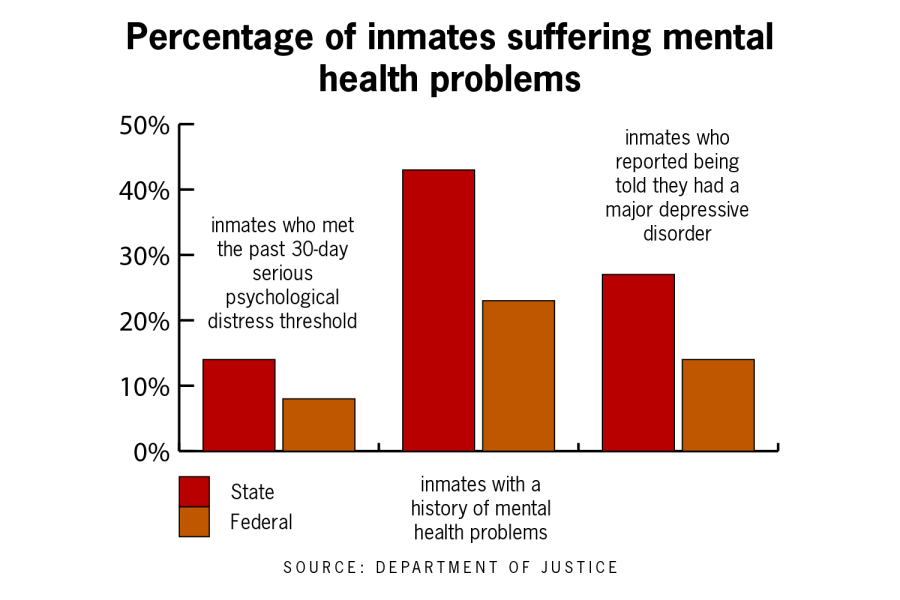UT psychiatrists work with community to improve mental health in jails
September 20, 2022
UT psychiatrists are working with Travis County to improve mental health services in jails and decrease the incarceration of people with mental health issues.
In May, the Travis County Forensic Mental Health Project brought together community members to create recommendations to reform the local criminal justice system. About 40% of people in Travis County Jail struggle with mental health, many of whom would benefit from outside treatment as opposed to jail, said Danny Smith, director of inmate health in the Travis County Sheriff’s Office.
“We have to redesign the system,” said Dr. Steve Strakowski, associate vice president of regional mental health at Dell Medical School. “No single group or person is going to fix it.”
Dr. Strakowski said the group has not finalized their recommendations, but they will likely include increasing efficiency for mental health evaluations, as well as increasing housing options for people who need treatment. The committee’s recommendations should be released within the next two months and will go to the county for funding, Strakowski said.
To prevent people from unnecessarily going through the jail system, Travis County’s Crisis Intervention Team addresses criminal activity that stems from mental health crises.
“(Being arrested) starts a domino effect of problems that complicate and compound everything,” Smith said.
Some people with mental health issues have to wait in prisons or in hospitals for evaluations to see if they are fit to stand trial, Strakowski said.
“We’re diverting people right now, but they’re getting diverted to emergency rooms and that’s not appropriate either,” Smith said. “They need beds in a community that are designed for mental health treatment.”
In 2020, Dell Medical School partnered with the Texas Health and Human Services Commission to rebuild the Austin State Hospital to improve psychiatric patient experience by creating single-person rooms and a partial hospitalization program. However, Strakowski said there is an over reliance on hospitals as treatment.
“(We want) the hospital being designed as a recovery process rather than just a place to hold people,” Strakowski said.
Although Travis County Sheriff’s Office has a psychiatrist, nurse practitioners and 20 counselors, Smith said treating mental health problems is easier outside of jail.
Ariana Navarro, a psychology and sociology senior, advocates for mental health in criminal justice. She said the environment of jail makes it harder to focus on recovery.
“You’re going to perceive yourself as somebody who’s done something wrong, and then that negative self-talk and self-view is going to affect their treatment,” Navarro said.
Navarro said increased funding for diversion programs — an alternative to jail that provides assistance finding housing, jobs and treatment — would help reduce rates of recidivism, the tendency for people to commit subsequent crimes.
“(They) take that weight off of the prisons,” Navarro said.
In addition to improving resources and efficiency in the system, Navaro said increased education and affordable therapy would rectify some problems.
“People who are interacting with the criminal justice system aren’t receiving rehabilitation for things that may have led them to commit a crime,” Navarro said. “To actually lower crime, you need to address all the things that are funneling into it, not just (lock) people away.”



